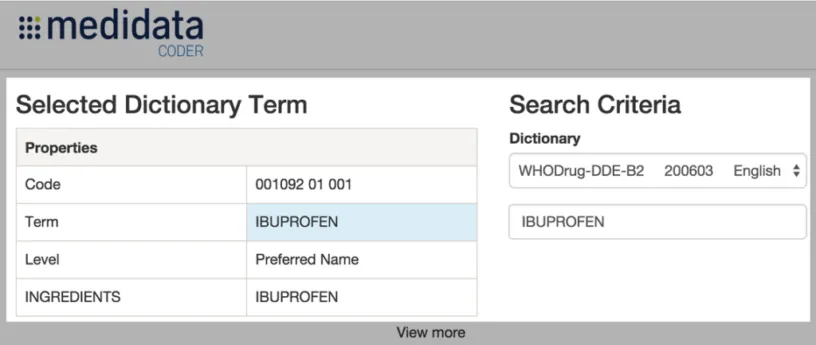Medical Coding Plays Vital Role In Clinical Trial Speed

Imagine that you are the director of clinical systems at a life science company. Your goal is to ensure that the clinical trial succeeds.
But if your clinical trial were to fail, wouldn’t you want to know why sooner rather than later in order to course correct for your other trials?
To understand why your clinical trial failed, you first need to complete medical coding of recorded trial data, then run a risk evaluation on the medically coded terms.
Let’s step back to the beginning of data capture in the clinical trial process to look at the role medical coding plays.During clinical trials, life science companies record medical terms, such as adverse events, medical history and concomitant medications, to document side effects associated with the treatment.
Once these terms are recorded, life science companies are required by the FDA and other regulatory authorities to code them to industry standard dictionaries, e.g., MedDRA for adverse events and medical history and WHODrug for concomitant medications. In Japan, clients may code to JDrug (IDF) for concomitant medications.
Medical coding is this critical process of standardizing recorded medical terms in order to submit treatment results to regulatory authorities. Life science companies’ biostatisticians often use the coded data to perform risk evaluation of the treatment before submission to regulatory authorities. This entails analyzing the coded data against dictionary terms that signal risk and their frequency.
Regulatory authorities such as the FDA rely on medical coding to generate important safety signals and perform quality control and risk analysis.
In order for medical coding to be completed, current industry standard dictionaries must be made available in clinical trial solutions. The major dictionary vendors release new versions of their coding dictionaries quarterly and biannually, and life science companies must load these new versions into their coding platforms soon thereafter.
This process is known as dictionary management, or administering and managing industry standard coding dictionaries within a clinical trial system. It’s an arduous and stressful task that life science companies typically outsource to a contract research organization (CRO).
Dictionary management can become a gating factor for companies to code, delaying the work until the latest version dictionary is in place to meet regulatory expectations.
Regulatory authorities recommend life science companies to update clinical trial coding decisions to the latest or near latest version of a dictionary, also known as up-versioning, prior to submission.
Life science companies have established standard operating procedures to mandate up-versioning of clinical data within 60 days of dictionary vendor release. As of late, due to reduced budgets and resources, coding departments pursue even more aggressive timelines and begin the process soon after dictionary release.
Software-as-a-service (SaaS) medical coding solutions can help life science companies significantly expedite the clinical trial process by taking on dictionary management and eliminating the following inefficiencies:
- the quarterly download and administration of new coding dictionary versions
- the application and execution of custom dictionary upversioning scripts
- the downtime associated with maintenance work required for dictionary up-versioning
Medidata recently announced that we make new coding dictionary versions available in Medidata Coder® within 10 business days of vendor release with no associated downtime, allowing life science companies to reclaim more than 83% of their stated 60-day service level agreements to devote to critical coding activities.
In addition, we continue to improve upon this service level agreement. We have made the latest MedDRA English and MedDRA Japanese dictionaries available on the same day they were released by the vendor.
For more information on Medidata Coder:
Cloud-based medical coding that easily connects with all of your source systems
Contact Us
